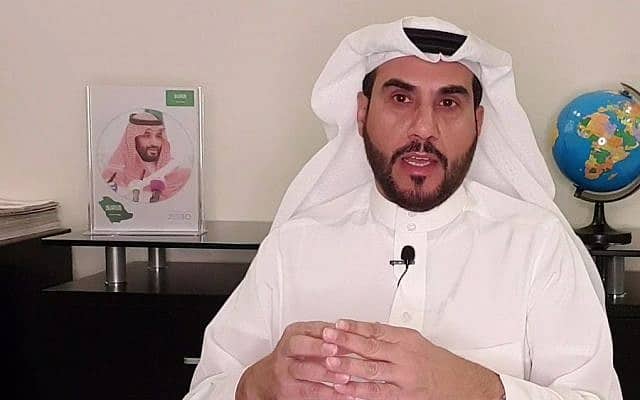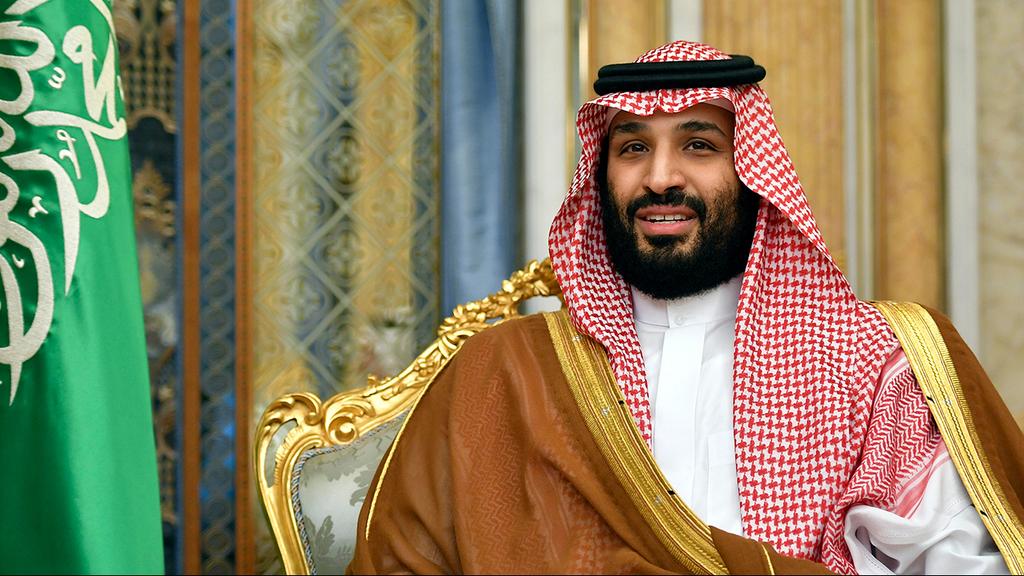Getting your Trinity Audio player ready...
A Saudi journalist claims that Riyadh has revoked citizenship for him and his family over his views on Israel.
Abdul Hameed al-Ghobein says that he was not officially informed about the reason, but insists that his repeated calls for the Saudi government to normalize relations with Israel were behind it.
The development comes amid reports that the Israel-Saudi relationship has been warming up.
Ghobein says he will not question the decision if it is the wish of Crown Prince Mohammed bin Salman.
“We only listen and obey,” he says.
For now, there is no evidence to support his assertion, with the Saudi government issuing no official statements on the matter.
Ghobein lists journalism as one of his professions. He has written for Israeli newspapers and uses social media to praise Prime Minister Benjamin Netanyahu.
“I call for direct and unconditional ties with Israel. This is a strategic choice,” he says.
“Israel was nice to us when international public opinion was against us during the Khashoggi murder case,” he says, referring to the killing of dissident Saudi journalist Jamal Khashoggi last year at the Saudi consulate in Istanbul.
“Israel’s position after Iran targeted the oil facilities was clear, and it stood by Saudi Arabia,” he added, bringing up the September 14 aerial attacks against Saudi oil facilities.
Palestinians have welcomed the news about Ghobein.
Dimitri Deliani, a member of the Fatah party’s Revolutionary Council, says that even though he was against the revocation of citizenship, Ghobein “deserves” to be disciplined.
“I am in favor of… punishing those who come out against their government’s decision to boycott the occupying power [Israel]. Maybe not by revoking [one’s] citizenship, but there should be a law to punish them,” he explained.
Deliani says people like Ghobein “distort the Palestinian cause” and “inadvertently help their country’s opponents.”
But Ghobein is not the only Saudi who is publicly calling for establishing ties with Israel – Mohammed Saud, a prominent media activist, has also voiced such support. The two are among a handful of Gulf citizens who have publicly called for building diplomatic and economic relations with Israel.
Yet fear of retribution is evident, as attempts to interview Saud went for naught.
A well-known Saudi journalist in Riyadh who asked that his name not be published says that this is a sensitive topic, with the royal family not having given the green light to journalists and activists to openly speak.
Israeli journalist-turned-political analyst Eli Nissan says that Ghobein’s case would not change the fact that some Gulf countries are eager to get closer to Israel.
“In general, Arab countries do not want public normalization, but many have hidden and secret relations,” he said. “There are strategic and economic relationships in place.”
Nissan says, however, that for full and public normalization to happen, the Israeli-Palestinian conflict must end.
“If a solution to the Palestinian issue can be achieved, normalization [with Israel] will go forward without punishment for anyone who expresses such a desire,” he said.
Palestinian activist Zaid Shuaibi says that U.S. pressure was one reason Gulf states have been flirting with Israel.
“There is an escalation in the pace of normalization by Arab governments, especially the Gulf regimes, with the occupying power [Israel], and it is clear that this has come from American pressure,” Shuaibi said, also citing “the absence of civic institutions that represent the voice of the people” in these countries.
He adds that he is puzzled by the Gulf states’ positions on Israel.
“While there is tension between Jordan and Israel despite the existence of a peace agreement, we find Arab countries like the UAE and Saudi Arabia scrambling to start relations,” he said.
Shuaibi says that engaging with Israel and establishing relations should come at the end of negotiations, not before.
“You don’t reward an occupying power,” he said, “by getting friendly with it.”



